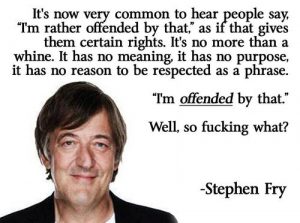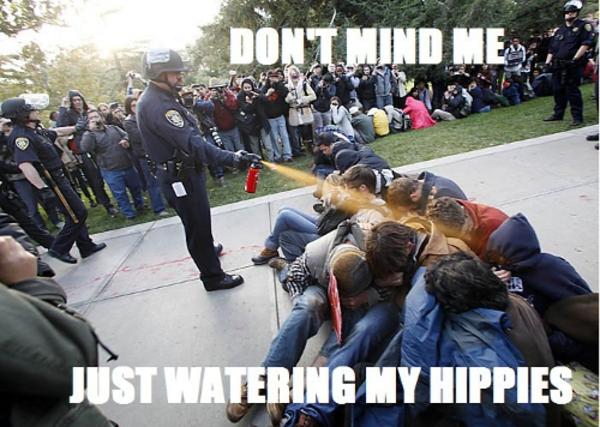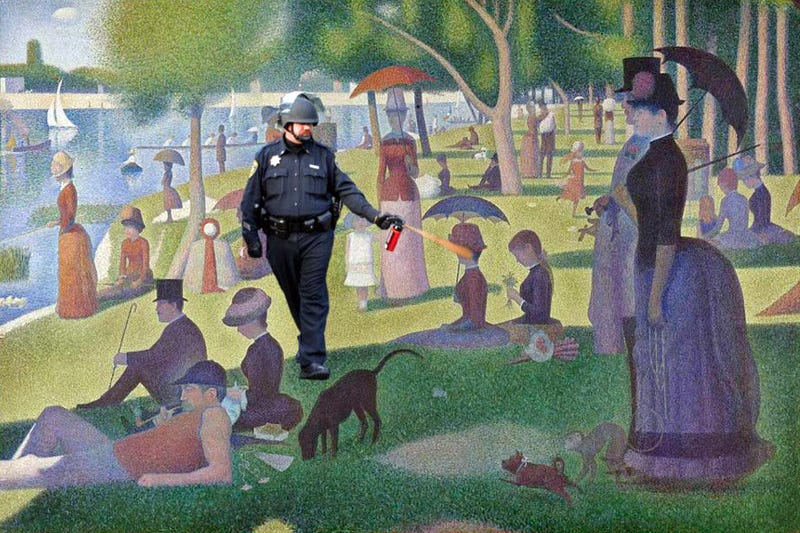Power is given, not taken.
If this is true then the most important thing for those with power is to make sure that it continues to be given to them. Early politicians were like royalty. Their right to rule was based on their belonging to – and being seen to belong to – a ruling caste. But two world wars have changed this. The right to rule shifts to the meritocracy and the best qualified shall rule. However, the meritocracy has cracked and the object is not to persuade the voters that they too can become kings or billionaires.
Adapting to change, politicians attempt to come across as folksier. They argue that they know what the common man needs, and they can provide it. We are currently at the point where this is failing. And Trump is the result.
Royalty does not need the populace to identify with them. They are there by the grace of god or some other power. In order to increase the distance from common folk they wear tiaras and crowns, gowns and sashes to distract people that underneath it all they are flawed individuals. The golden carriage is necessary if they are to remain in power.
The same is true of the pre-war(s) political elite. Yes, they needed votes but the system was corrupt enough and the populace confused enough to vote them into office on the basis of their arrogant belief in the right to rule.
The meritocracy has its own internal flaw. It’s built on the fallacy that everyone can achieve greatness through work. The meritocracy therefore attempts to argue that it’s not an elite. It is simply a club to which you currently don’t belong. But you may do in the future.
The meritocracy did not need to pander in person to the voters. They were quite obviously the right to rule since they had the right name, right manners, right schools, etc. However, the meritocracy has begun to crack. The political class is recognized to a much greater extent as a class.
The poor don’t get into the right schools, and if they do, they don’t get the right backing. Rarely do we see true class journeys in the political elite. Which means the elite must appeal to the larger group. For the last three decades the politicians belong to the elite but strive to show themselves to be “of the people”. They take of their ties, they role up their sleeves, they share beer recipes and eat common food. And if they fail, they do so at their peril.
Analyzing American presidential campaign ads can be fun. They are all sons of immigrants, they all appear in semi casual wear and they all promote the idea of their “commonness”. This is despite the fact that they mostly have gone to very exclusive schools, where they made invaluable contacts for the rest of their lives.
With Trump its different. Yes he is part of the elite and he has gone to the right schools and made the right connections, but that’s not what he is trying to do. He doesn’t role up his sleeves or take of his tie.
He is not telling crowds that he is a man of the people and has their best interests at heart. He is telling the voters that he is better than them. He is better than everyone. By his own boastful admission, he is richer, went to the best schools, has the best vocabulary, is the best negotiator, best businessman, and now, in what should have been predictable, he’s told the world on national TV that he has a big cock.
His appeal is not that of royalty, he is not the dream of meritocracy (you will never be as good as him), appeal is not to be the trustworthy politician that acts in the voters best interest.
His appeal is that he is offering the opportunity to bring people into the corridors of power. Once he is there the voter can live vicariously through him as he shouts at world leaders: “You’re fired”
This is why he can be racist, misogynistic, stupid, evil, and just plain rude without losing popularity. He is the uncommon man that offers vicarious life. He cannot be stopped by facts – there is more than enough proof to show that he lies about many things. He cannot be stopped by scandal – the man invites scandal through his life and language and speeches. The tools to stop each type of politician vary depending on the type of image they are trying to project.
- To win an election against royalty = prove that they are common
- To win an election against meritocracy = prove that the club is closed
- To win against the “common man” = reveal the hypocrisy that political elites don’t care for commoners.
- To win against Trump = prove that he will not take the viewers with him, and that his powers are an illusion. And when the cameras are on him, the experiences of the onlooker will be shame and defeat as the leaders of the world laugh at him.
In his own words: Nobody likes a loser.





